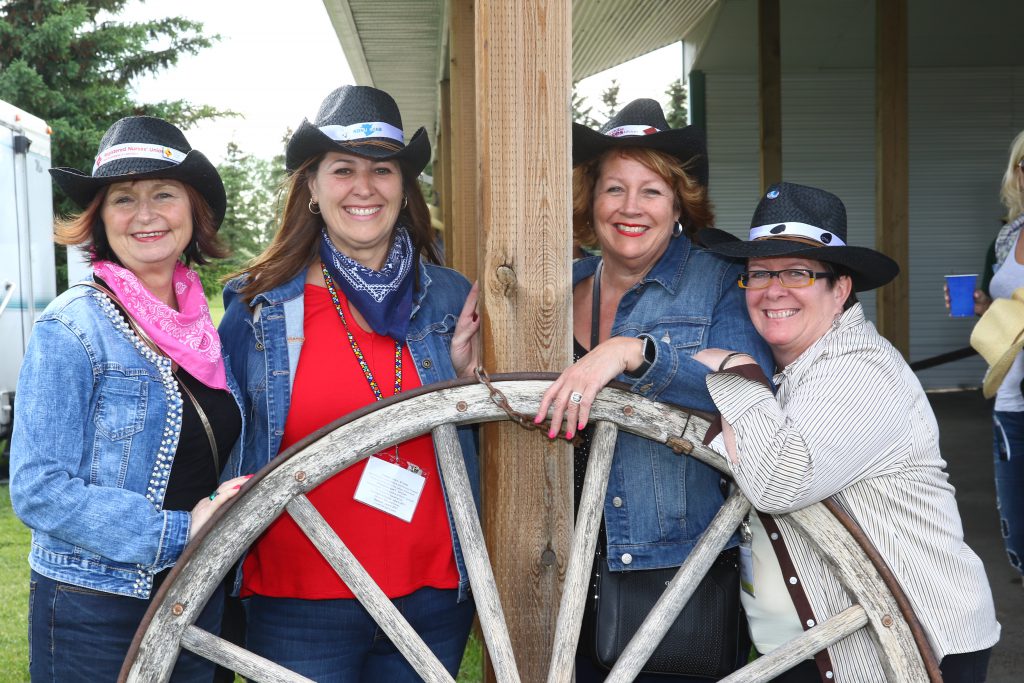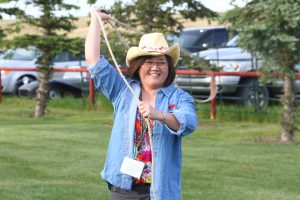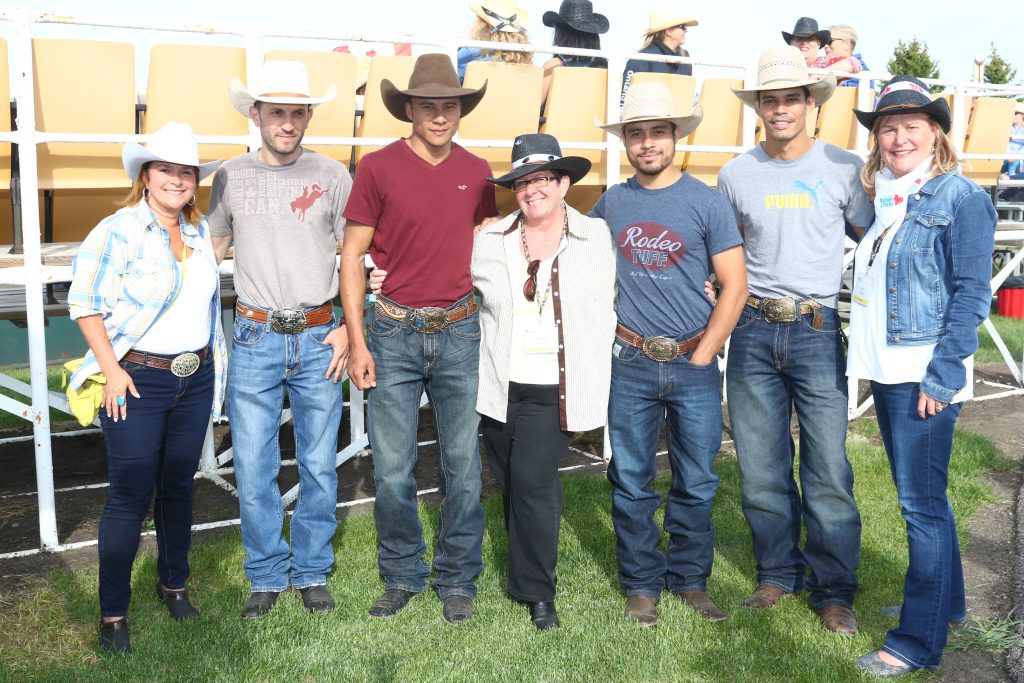Can you feel it? The energy, the excitement, the encouragement, and the sense of solidarity that is starting to fill the air? Save some of that energy – we have got lots to do this week.
The day was built around connecting with nurses from other provinces, sharing ideas, empathizing with and learning from others’ experiences, and recognizing we are not alone in the struggles we face as nurses and as leaders in healthcare.
CFNU president, Linda Silas, is now an honourary Calgarian, following The White Hat Ceremony on the opening day of convention.
Silas was presented with a white Smithbilt hat, as part of the long-standing tradition in Calgary of welcoming visitors to the city. Since the 1950s, the White Hat has been a symbol of Western hospitality and good cheer.
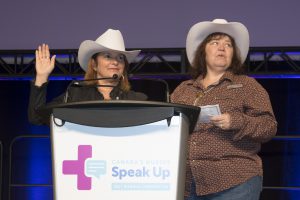
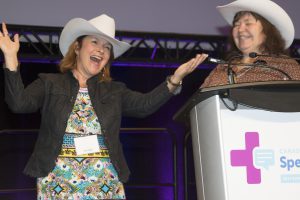
What kind of person willing goes into a conflict zone and risks his/her life to save others? During this morning’s plenary session, delegates met one of these health care heroes – Captain Stephanie Smith, a military nurse, who served in Afghanistan, as well as participated in several relief missions, including in Haiti. Captain Smith recounted her missions and shared stories that were both terrifying and inspiring.
“Imagine going to work and having to treat bombing victims that are your neighbours,” she said. “This is the reality of working on the front lines in a conflict zone.”
Leonard Rubenstein, founder and chair of Safeguarding Health in Conflict Coalition gave numerous examples of hospitals that were bombed in conflict zones and introduced delegates to the term “double-tap strike” – the act of bombing a hospital a second time, while first responders are already inside providing care.
“Nurses and hospitals have become targets for simply doing their jobs of providing impartial care,” he said. “There are lots of dirty hands on the UN Security Council has paralyzed progress for improving accountability and protection.”
Rubenstein called on the 1,000 nurses in the room to speak up for change. “Nurses can and do lead the way,” he said. “Let’s educate people on the scope and catastrophic scale of the problem of violence on health care workers.”
With so many great workshops to pick from, how do you choose? Here are but only a few samples of activities, information, things to think about as we take our new found knowledge and skills back to our workplaces.
This workshop on speaking up is billed as a highly practical and interactive workshop on interpersonal communication. Facilitator Gerard Murphy summed up his goal for the workshop this way: “I really want nurses to know that they can be assertive, in a respectful and professional way, in their practice and as activists.”
Murphy describes himself as a “high extrovert” and he is exactly that, as well as funny, engaging, and respectful. The workshop will give you lots of practical communication techniques to build your skills and many opportunities to practice what you are learning throughout. The time flies by with activities, reflection, and learning constantly interwoven.
One participant described the session as “totally worth it – I’m thinking about taking this education back to our hospital. The empathetic assertion techniques and using body language are really useful.”
This workshop will push you out of your comfort zone but never embarrass you, and you’ll go home with a handbook full of great ideas to try out.
A fantastic and engaging session that equips and shows that nurses, from around the country, are ready to look at taking on upstream thinking.
Upstream thinking means investing wisely for future success rather than spending all of our time and resources responding to and perpetuating failure. If health for all is our goal, then upstream thinking is about addressing the things that have the greatest influence on our health, including income, employment, education, early childhood development, housing, nutrition and the wider environment.
An interactive workshop designed to have participants constantly engage with new perspectives, Global Café shows nurses from across Canada note the same factors causing them to take a new approach to creating positive changes as they turn to upstream thinking.
This informative workshop took a deeper look at Post traumatic stress disorder (PTSD) and the impacts on nurses and the profession as a whole.
PTSD, a psychiatric disorder most often associated with war veterans, has been silently working its way through the nursing profession. In fact, Canadian studies estimate that more than 30 per cent of nurses experience one of more symptoms of PTSD. It has been was found that, unlike most professions, it is typically the prolonged, cumulative exposure to trauma that can cause PTSD symptoms in nurses, as opposed to one acute event.
“Nurses normalize and expect trauma to be part of the job,” said Mikaela Brooks, MNU researcher. “This belief can impede upon a nurse’s ability to recognize triggering events and to determine if they are coping well.”
“Mental well being is not so different than physical well being,” said Jeff Psych, psychologist. “Yet, we have this idea that physical illness is somehow more acceptable than a mental illness.”
Nurses across the country, and their unions, are encouraged to continue to lobby for changes to their respective provincial legislation to recognize the impact of PTSD on nurses through the implementation of “presumptive legislation”. In short, “presumptive legislation” removes the need to prove that PTSD is a result of the work environment. To date, Manitoba is the only province to enact presumptive PTSD legislation that is inclusive of nurses.
Which did you choose? The Western BBQ and Rodeo or the Segway Experience? Either way, there were laughs shared and memories made.
Thank you to the United Nurses of Alberta (UNA) for organizing two (2) fantastic Fun Night events. Can’t wait for the banquet!
